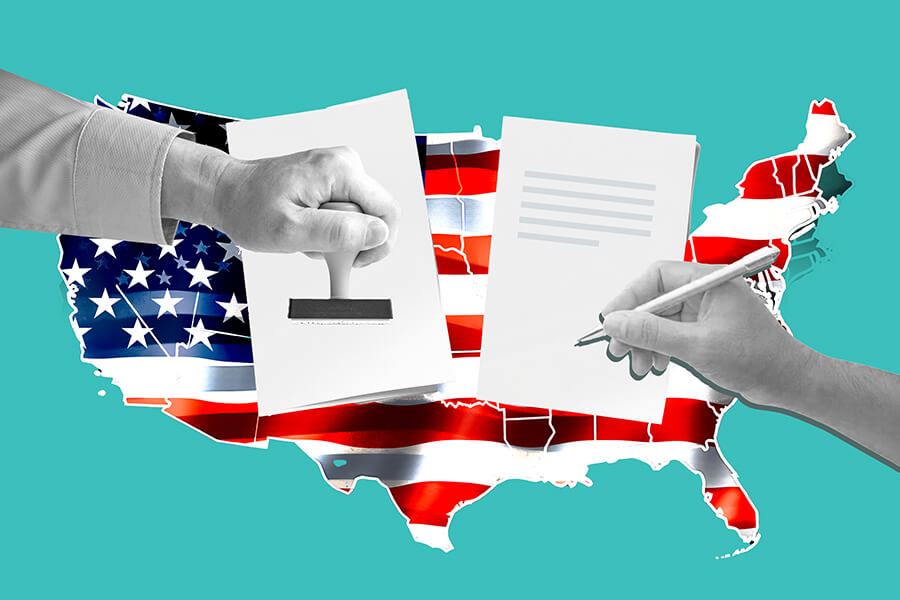
Notaries know they are only authorized to notarize within the jurisdiction defined by your state, which in most cases is your state. But what do you do if a signer needs to have an out-of-state document notarized? Are you authorized to do so, and, if so, how?
The easy answer: Yes, you may notarize out-of-state documents
You are allowed to notarize documents that are sent and /or recorded across state borders — provided, of course, that you are notarizing the document within the boundaries of your jurisdiction.
It doesn’t matter where the documents will be recorded as long as you are following the Notary laws for your state. This includes documents for out-of-state real estate transactions, such as purchases or mortgage refinances.
Check — and correct — the certificate venue if needed
Be sure the “venue” portion of the notarial certificate reflects the state and county where the notarization actually takes place; if that portion of the certificate is pre-populated with another venue, cross through it and enter the correct information.
Know — and follow — all your state’s Notary laws
Even when notarizing an out-of-state document, which may have certificates specific to the state where it is being filed, you are still responsible for knowing and following your own jurisdiction’s laws.
For example, in California, any document that affects real property requires the Notary to obtain the thumbprint of all signers in your Notary journal. If you are notarizing real estate documents, this law applies regardless of where the property is located.
Remember: When dealing with out-of-state documents, the Notary laws of your jurisdiction always supersede those of the state in which the document will be recorded.